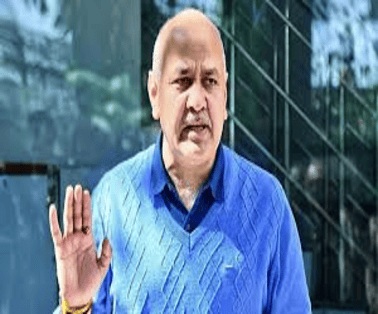In a landmark event in Indian politics, Arvind Kejriwal’s arrest by the Enforcement Directorate (ED) has drawn national attention. The arrest is linked to the alleged Delhi liquor policy case, a controversy involving charges of corruption, money laundering, and cartelisation under the Delhi excise policy scam.
Key Highlights: Arvind Kejriwal Arrest
- Delhi CM Arvind Kejriwal became the first serving Chief Minister in India to be arrested while in office.
- The ED arrest of Kejriwal followed nine summonses issued between October 2023 and March 2024, which he failed to attend.
- The Delhi High Court rejected his plea for protection, paving the way for his arrest.
- Kejriwal initially challenged the arrest in the Supreme Court, but later withdrew the plea.
- This is the third major Aam Aadmi Party (AAP) leader arrested in connection with the Delhi excise policy scam, after Manish Sisodia and Vijay Nair.
What Is The Delhi Liquor Policy Case?
- Two cases have been registered in relation to the excise policy — one by CBI, and the other, on alleged money laundering, by the ED.
- In November 2021, the Delhi government, under Arvind Kejriwal’s leadership, introduced a new excise policy aimed at modernising alcohol sales in the city.
- Less than a year later, in July 2022, Delhi’s Chief Secretary Naresh Kumar reported violations in the policy to Lieutenant Governor (L-G) Vinai Kumar Saxena, who recommended a probe by the Central Bureau of Investigation (CBI).
- The report submitted alleged “financial losses to the exchequer” amounting to more than Rs 580 crore.
- The Enforcement Directorate (ED) alleged that the policy was intentionally designed with loopholes to favour AAP leaders and promote cartel formations.
- It accused AAP leaders of receiving kickbacks from liquor businesses in exchange for preferential treatment, such as discounts, license fee waivers, and relief during the Covid-19 pandemic disruptions.
- The ED alleged that the “scam” involved giving wholesale liquor businesses to private entities with a fixed margin of 12 per cent, for a six per cent kickback.
- Additionally, they were accused of influencing elections held in Punjab and Goa in early 2022.
- The CBI conducted raids targeting then Deputy Chief Minister Manish Sisodia and three others. The CBI named Sisodia and 14 other accused in its FIR, including AAP communications in-charge Vijay Nair, who was arrested in September 2022.
What Are the Charges Against Kejriwal?
- The ED said in court that the Aam Aadmi Party (AAP) chief was the “kingpin and key conspirator of the Delhi excise scam”.
- ED said Kejriwal was involved in the conspiracy to favour certain persons and in the demanding kickbacks from liquor businessmen in exchange of favours
- He was also “involved in the use of proceeds of crime…in the Goa election campaign of the AAP of which he is the…ultimate decision maker
- According to the ED, Kejriwal spoke to one of the main accused, Sameer Mahendru, over a video call and asked him to continue working with co-accused Vijay Nair, whom he referred to as “his boy”. Nair is a former communications in-charge of the AAP.
About the Enforcement Directorate (ED)
- The Directorate of Enforcement or the ED is a multi-disciplinary organization mandated with investigation of economic crimes and violations of foreign exchange laws.
- It functions under the Department of Revenue of the Ministry of Finance.
- As a premier financial investigation agency of the Government of India, the ED functions in strict compliance with the Constitution and Laws of India.
- ED with its headquarters at New Delhi, is headed by the Director of Enforcement.
- There are five regional offices at Mumbai, Chennai, Chandigarh, Kolkata and Delhi headed by Special Directors of Enforcement.
- The tenure of the directors’ is two years, but directors’ tenure can be extended from two to five years by giving three annual extensions.
- Recruitment of the officers is done directly and by drawing officers from other investigation agencies.
- It comprises officers of IRS (Indian Revenue Services), IPS (Indian Police Services) and IAS (Indian Administrative Services) such as Income Tax officer, Excise officer, Customs officer, and police.
History and Structure of the ED
- The origin of this Directorate goes back to 1st May, 1956, when an ‘Enforcement Unit’ was formed in the Department of Economic Affairs
- This Unit with Delhi as Headquarters was headed by a Legal Service Officer, as Director of Enforcement
- In the year 1957, this Unit was renamed as ‘Enforcement Directorate’, and another branch was opened at Madras.
- In 1960, the administrative control of the Directorate was transferred from the Department of Economic Affairs to the Department of Revenue
Functions Of ED
The statutory functions of the Directorate include enforcement of following Acts:
- The Prevention of Money Laundering Act, 2002 (PMLA):It is a criminal law enacted to prevent money laundering and to provide for confiscation of property derived from, or involved in, money-laundering and for matters connected therewith or incidental thereto. ED has been given the responsibility to enforce the provisions of the PMLA by conducting investigation to trace the assets derived from proceeds of crime, to provisionally attach the property and to ensure prosecution of the offenders and confiscation of the property by the Special court.
- The Foreign Exchange Management Act, 1999 (FEMA): It is a civil law enacted to consolidate and amend the laws relating to facilitate external trade and payments and to promote the orderly development and maintenance of foreign exchange market in India. ED has been given the responsibility to conduct investigation into suspected contraventions of foreign exchange laws and regulations, to adjudicate and impose penalties on those adjudged to have contravened the law.
- The Fugitive Economic Offenders Act, 2018 (FEOA):This law was enacted to deter economic offenders from evading the process of Indian law by remaining outside the jurisdiction of Indian courts. It is a law whereby Directorate is mandated to attach the properties of the fugitive economic offenders who have escaped from the India warranting arrest and provide for the confiscation of their properties to the Central Government.
- The Foreign Exchange Regulation Act, 1973 (FERA):The main functions under the repealed FERA are to adjudicate the Show Cause Notices issued under the said Act up to 31.5.2002 for the alleged contraventions of the Act which may result in imposition of penalties and to pursue prosecutions launched under FERA in the concerned courts.
- Sponsoring agency under COFEPOSA:Under the Conservation of Foreign Exchange and Prevention of Smuggling Activities Act, 1974 (COFEPOSA), this Directorate is empowered to sponsor cases of preventive detention with regard to contraventions of FEMA.
Special Court
- For the trial of an offence punishable under section 4 of PMLA, the Central Government (in consultation with the Chief Justice of the High Court), designates one or more Sessions Court as Special Court(s). The court is also called “PMLA Court
- Any appeal against any order passed by PMLA court can directly be filed in the High Court for that jurisdiction.
Conclusion
The Arvind Kejriwal arrest in the Delhi liquor policy case has wide-reaching political and legal implications. As investigations continue, this case is expected to remain a major focal point of media, governance, and electoral politics in India.
To Download Monthly Current Affairs PDF Click here
Click here to get a free demo
Discover all about CLAT Exam



